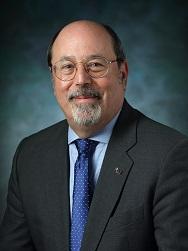Giving Thanks from Across the Pond
I just returned from the AoC Conference in Birmingham to celebrate our American Thanksgiving with family. This year’s trip the U.K. afforded me the first opportunity to interact with our British colleagues since the June 23rd Brexit vote, the subsequent change at 10 Downing Street, and our November 8th Presidential Election. Clearly the sea change in British and American politics has created a good deal of anxiety for both or our sectors. How appropriate, then, to spend time across the pond to share and reflect on our two sectors and the work that lies ahead.
I have opined in this column on several occasions about the similarities and differences between the colleges of further education and community and technical colleges. My most recent trip to the AoC Conference has convinced me even more profoundly that our similarities far outweigh our differences. My exchanges with my colleagues in the U.K., and between AoC and the organization that I am privileged to oversee, highlight the need for greater cooperation and “brainstorming.”
I heard much at the AoC Conference about the status of the area reviews and consolidation among colleges. I was struck by the impetus behind area reviews and the many complexities involved in “getting it right.” At the heart of this process is the need to place students and communities at the forefront of any movement to consolidate and refocus on core mission. This really resonated with me as I reflected on the current situation in the U.S., where funding and investment in our colleges continues to pose serious challenges. Such fiscal pressures are leading policymakers to reexamine their own community and technical college systems and how to achieve greater economies of scale, resource efficiencies and higher student success outcomes.
The American elections have further consolidated power in the states and in Washington, D.C. with the Republican Party and the more conservative voices of the party. This will have real implications for our sector and suggests that we, like our British colleagues, will need to polish our arguments and reframe our data to resonate more appropriately with changing political and social trends.
We need to focus with a great deal more intentionality on outcomes and the myriad economic connections between education and workforce development and jobs. It’s not that the colleges of further education and community and technical colleges lack for a good story; rather, the story must shift in ways that recapture the imagination of our changing politics and focus on our internal socio-economic turmoil.
While it is early in the game with respect to the new British and American Leadership, it is abundantly clear that we need to up our efforts in defense of our sectors. I, for one, continue to believe that the forces and movements that currently vex our economies, our senses of identity and our places in the world can be addressed through the great leveling power our colleges possess in serving a wider array of individuals who are looking for better economic mobility and fit in today’s complex, interdependent world.
My optimism is not naïve; it is an optimism informed by the continuing dialogue and exchange between our two sectors. As Sir Winston Churchill observed, “America always does the right thing after exhausting all other alternatives.” Continued dialogue and exchange across the pond will compensate for the perceived paucity of alternatives. I believe that the incredible leadership of our two sectors will do the right thing now that we’re needed more than ever to bring a renewed sense of commonality and shared values to our two nations.
J. Noah Brown is the president and CEO of the Association of Community College Trustees and the author of First in the World: Community Colleges and America’s Future. He is based in Washington, D.C.












Responses